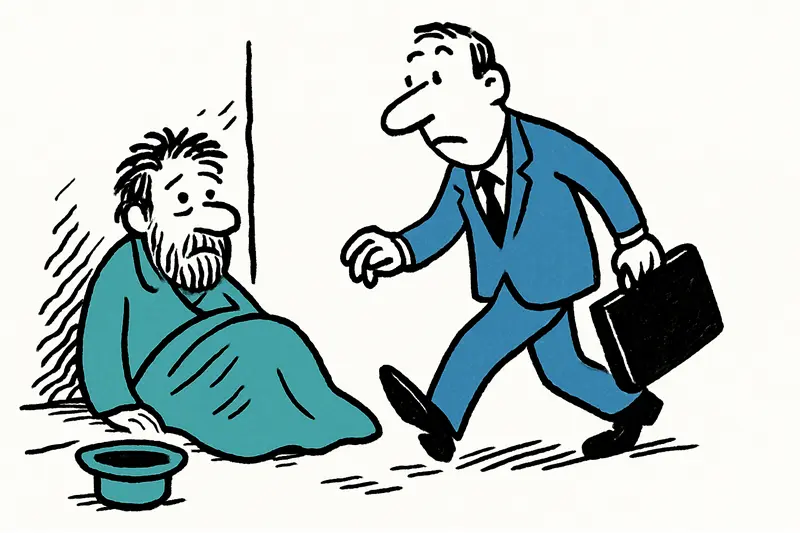In Palma, cases of people who, despite having a job or social benefits, have no roof over their heads are increasing. Helpers are reaching their limits, and municipal shelters are full.
More people on the street, even during the day – the situation is worsening
In Palma's streets you see them more and more often: people who have to go to work in the morning and have nowhere to sleep in the evening. The number of people seeking help, who are cared for at night by mobile teams, has risen significantly this year. According to the helpers, there have been around 1,940 contacts so far – and the forecast is: it will not be less, but more likely more.
"We get dozens of calls every evening", says Hugo, one of the social workers who patrol at night. "Sometimes the phone rings 40–50 times, and we can't be everywhere at once." His team consists of about a dozen people, he says, and they have to set priorities: first the most vulnerable, then the others.
A development that has surprised many: it's not only people with obvious addiction disorders or severe mental illnesses who end up on the street. More and more helpers meet people who have a job or at least claim social benefits – but with the income it is not enough for a place to live.
Living becomes a luxury
Rooms in Palma cost, according to social circles, between roughly 400 and 900 euros. For single people with low-wage jobs, that's often unaffordable. The municipal emergency shelters have waiting lists, the regional social welfare office IMAS reports full beds and long waiting times. Measures such as the new 18 places from January 2024 or a home with 26 places in Binissalem helped – but not enough.
One planned additional emergency shelter with 50 places failed, it is said, while talks are underway about buying a facility with another roughly 25 places. Until such solutions are in place, the mobile teams distribute blankets, sleeping bags and bread at night and try to offer long-term support.
The people the helpers talk to are a mixed bag: seniors, migrant women and men, workers, but also people with complex health problems. "That makes the situation more complicated," says Hugo. "You can't fit everyone into one schema."
On site, frustration is growing: residents in some neighborhoods see improvised tent camps, night shifts in parks and groups staying in doorways. At the same time, one hears from employers who would be willing to help but are also under price pressure.
What is needed now
Hugo and his colleagues demand more political resolve: affordable housing, faster transitional housing and low-threshold support services. "Helping people off the street is important, but it's not enough. We need solutions that bring people back to safety in the long term," he says.
It's a problem that affects not only individual groups but the whole city. Anyone walking through Palma in the evening notices: the island shines, but in some corners a gap is widening.
Similar News
Palma in Transition: Which Neighborhoods Are Seeing Income Soar
In parts of Palma, average incomes have risen significantly over the last ten years—especially where wealthy foreigners ...

After 30 Years: Retired Couple Leaves Mallorca – Rising Rents Push Them to the Mainland
After decades on the island, María and Paco must move to Alicante due to rising rents and dwindling pensions. A story ma...

Traffic Cameras in the Tramuntana: Tender Starts Soon
The island council plans to push ahead with the camera project on the Ma-10, which has been stalled for months, through ...

Court confirms right to Islam education in Mallorca schools
A court on the Balearic Islands has decided: parents can demand that Islam education is offered near their children at p...

Balearic Islands report more deadly accidents due to driver distraction
On the Balearic Islands, there are noticeably more deadly traffic accidents involving driver distraction. Police and the...
